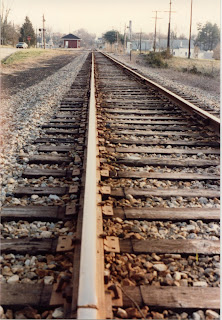This past two weeks I have been starting with re-mineralization. Which means, hey your body is so completely out of balance, you have to take targeted supplements for several months to several years to restore it. If you want to learn more about this, please take a look at what Maria has made clear on her Restco blog.
My own test results were below the lowest of the normal range for all but one vital mineral -- and the ratios between vital minerals confirmed adrenal burnout (not really a big surprise).
One of the things the ARL lab is clear about in their materials is that you will feel better, and have more energy, as you embark on the program. And this has been my experience. Just like Maria, I have found I am at least 40% better already. Which, when you have been absolutely flattened, is a huge improvement. But what ARL says immediately after "you will have more energy" is "don't spend it."
You body heals mostly at night, and it needs energy to heal. Your cells have only so much energy, and if you're starting from behind the eight-ball you need to guard and preserve what you can scrape together.
This whole process is making me reconsider the wisdom of Daoism, which I had studied in graduate school but mostly disregarded in favor of Buddhism. Well, now that I see an acupuncturist/Chinese herbalist twice a week, I'm coming to understand all the Daoist emphasis on spiritual vitality as an operating metaphor for everyday energy management.
Heaven does nothing: its non-doing is its serenity.
Earth does nothing: its non-doing is its rest.
From the union of these two non-doings
All actions proceed.
All things are made.
How vast, how invisible
This coming-to-be!
All things come from nowhere!
How vast, how invisible
No way to explain it!
All beings in their perfection
Are born of non-doing.
Hence it is said:
“Heaven and earth do nothing
Yet there is nothing they do not do.”
Where is the man who can attain
To this non-doing?
-- Chuang Tzu
What does this look like for adrenal recovery in the modern era? For the first time since grade-school I have been going to sleep at 9 or 9:30pm and I have to say the difference in sleep and the feeling upon waking is remarkable. Also, a self imposed curfew of no electronic screens after 8pm. I find that helps my bodymind come down from the frenetic energy level we carry throughout the day. Eating more meals more frequently. Keeping a food journal and being clear about the effects of when and what I eat. Eating only whole, unprocessed foods. Reviving my sitting practice. Beginning to do artwork again. Letting go of the feeling that I must achieve this or that in any given 24 hour period.
I feel sheepish that a science writer at ARL had to be the one to raise this particular aspect of burnout to my attention. So much focus on the medical side, anxiety about will I recover from this and not enough on:
What could possibly be positive about burnout? Burnout is often a wake up call. For those who can hear, it can be a signal that one's life is out of balance. It can provide a stimulus to re-examine where and how one lives. Maybe one's attitudes need adjustment, or one has set unrealistic goals. Often one has not loved the body enough and has in fact ignored or mistreated it.The sound you hear is the sound of one Zen hand clapping myself on the forehead.
Burnout can be a opportunity for a person to reevaluate priorities in order to bring one's life into greater harmony and happiness.










